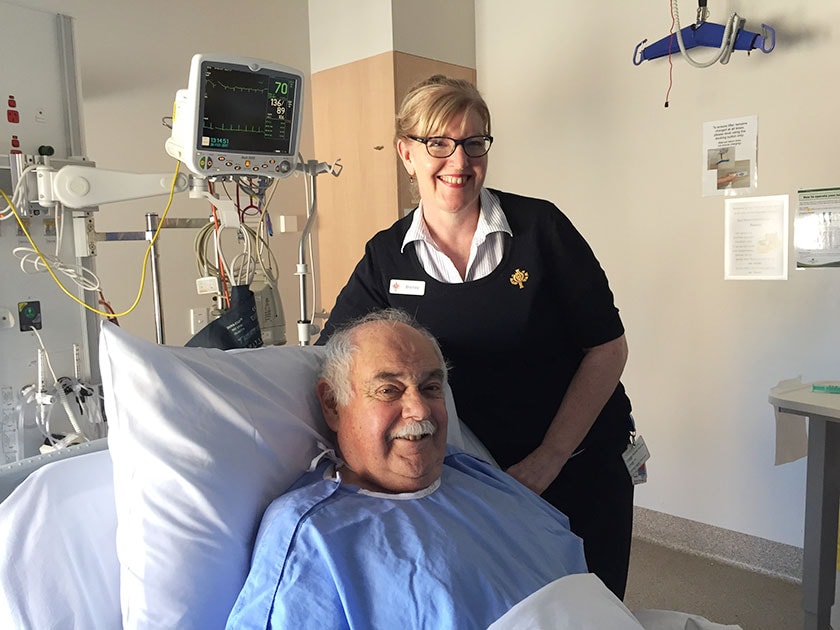Introducing Brenda McDougall
10 Mar 2017

The soprano has sung with Australia's leading opera companies. Her latest stage persona is Michal in Handel's Saul at Mica Grange, Sutton Grange, on Sunday, March 19.
She shares about her twin roles at the front line of health care and on the stage.
Q: What do you love most about nursing?
A: I love working in intensive care because you really do feel you are making a difference to a person's life. We look after people when they are critically ill, with every line, every tube, every imaginable device attached to them and you often wonder whether they will get through. I love being able to concentrate on giving the best care possible to my patient. I love seeing them come back when they've recovered. knowing we, as a team, have helped to save that person's life. It gives me a wonderful sense of satisfaction.
Q: You must also liaise with the families. That must be very challenging.
A: Families often don't have an understanding of what's going on. They hear all the alarms, see all the machines and they are usually very anxious. Therefore we care for the families as much as we do the patients; explaining, reassuring, giving TLC, de-stressing. It can be quite a challenge, dealing with all those things and still getting all your work done. It's very easy to become focused on the tasks. You have to remember there's a patient in the bed.
Q: Do you ever feel particularly connected, close, to some patients?
A: You do develop a rapport and a close relationship with certain patients, which is true in everyday life as well. Some personalities you just click with and you'll do anything for that person, bend over backwards for them. I'm often amazed at the resilience of the human spirit, of people's ability to put up with all the setbacks of a long illness and still have a positive outlook. These people are such an inspiration to me.
Q: Not everybody recovers. How difficult is it to cope with the deaths?
A: In ICU, you can see a patient deteriorate before your very eyes, but you can intervene quickly, which is really satisfying, to have the skills and the drugs and the technology to enable you to do that. But, yes, sometimes, you do everything possible but still can't save the patient. It's very hard when the decision is made that nothing more can be done. We nurses are usually in the family meetings when those conversations take place and it's important to be there for that family support. Their grieving has started long before this point, so you feel as though you're giving the whole person and their family the care, their whole life, and not just their illness. You get a chance to respect that person in a more gentle, caring way than you often do in ICU, which can be focused on the tasks, like let's put in the tubes, let's put in the lines, let's get it all done. We look after the patient till the end, and it is an honour and a privilege to be able to do that.
Q: How do you juggle the two, nursing and singing? Do you feel like two different people?
A: When I'm at work I'm just professional as a nurse. I don't really think about music and singing. But I identify myself as a singer and I am happiest at work when I have some musical project on the go. People often ask 'Do you sing to your patients?'. It's something I never do and I don't like drawing attention to it at work. Over the years, I've often had big crowds of my nurse friends come along to hear me sing, which is always a huge thrill for me. They see me with my nurse hat on, so to speak, and I think they get a surprise to see me as a completely different persona on stage.
Q: You're singing Michal in Handel's Saul on March 19 in Sutton Grange. How do you feel about Handel's music?
A: I adore Handel, the simplicity and beauty of his melodies, the emotional depth. It's not the most expansive, emotional music like Puccini, but his use of tonality and rhythm creates the greatest pathos and also the greatest joy. You get all that in Saul, particularly at the end in Michal's aria, "In sweetest harmony, they lived'. It's very inspiring. I love the way Handel enables you to vocally and physically articulate the emotions that we as humans are capable of.
You may be interested in

